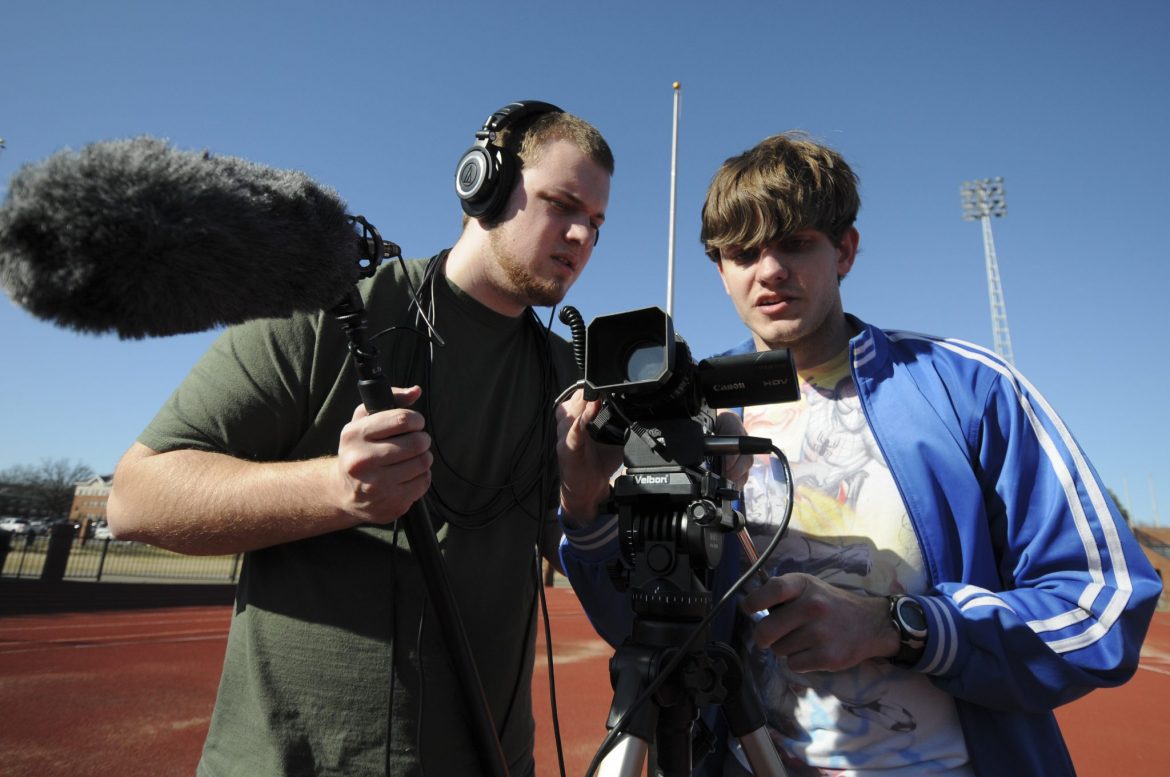Most Harding students enjoy watching movies, but a few share a deeper appreciation of the work that goes into the process of filmmaking.
And many of those students are enrolled in Harding’s new course, Script Production for Television and Film.
Being taught at Harding for the first time, the class is taught by Grant Dillion, adjunct instructor in the communications department.
It runs every spring of even years, according to the Harding academic catalog. It serves as a sister course to Script Writing for Television and Film, which is scheduled for every fall of odd years.
Senior Riley Walling, a student in the class, said students learn the basics of amateur and professional film production and eventually produce their own short films and commercials for local businesses. For every project, students are divided into groups of three or more which include a director, a sound technician and a lighting technician.
Students are expected to perform all three tasks over the course of the semester, and the projects alternate between commercials and short films.
Walling and junior Amy Morris both said that they chose electronic media production as their major because it was the closest thing Harding offers to a film major and that the script production and writing courses have proven to be valuable to their education.
Morris, Walling and junior Jon-Scott Smith said they all took Script Writing for Television and Film last semester, and they look forward to seeing the scripts they wrote come to life.
“Some of [the subjects of the scripts] are as complex as a superhero who forgets his memory or as simple as someone who does parkour around campus,” Walling said.
Smith said his job is sound technician for “Parkour Guy,” but he said he looks forward to directing the original script he wrote in the fall, “Preying for Snow” (working title).
“[It’s] about a freshman who gets kidnapped by another student and is forced to go on a crazy vengeance mission with his captor,” Smith said.
Morris said she is anxious to learn how to edit film so that she can be prepared to direct her upcoming project, “The Handshake,” which is a short film about a couple rekindling their past relationship. She said her group finished filming its last project three weeks ahead of schedule, which gives her more time to prepare.
“Our director gave us permission to watch [him] edit, and I need that,” Morris said. “I need that help so that I know how to do it once it comes time for me to direct.”
Walling said he wrote the script for an un-aired commercial for LazerCade, the lazer tag and arcade on Race Street. He said the advertisement depicts a laser tag fight breaking out in an office and Walling said he was afraid he would not get to see his vision for the script realized.
“In my mind, I saw these cubicles and people shooting lasers and stuff blowing up and a bunch of outrageous stuff like that,” Walling said. “I wanted to capture that, but I didn’t have an office or a cubicle.”
Walling said after gaining permission from the librarians at the Brackett Library, he was able to shoot his film using the cubicles on the first floor of the building after hours.
Students of the film production and writing courses said they were grateful for the communication and English departments and Dillion, without whom, Smith said, these courses would not have been possible.
“Honestly, the best part of the class for me is interacting with the professor,” Smith said.
Script production and script writing are open to all students, and Smith recommends these classes to “anyone who loves storytelling.”
